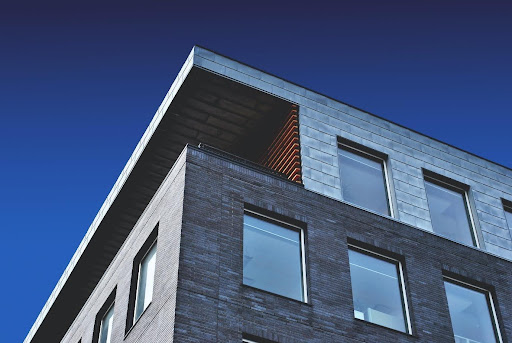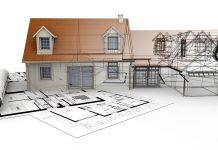Do you have windows in your home that constantly let in drafts, fail to open or close properly, or simply appear outdated? If that’s the case, it’s undoubtedly time to consider window replacement. Upgrading your windows can significantly improve your home’s appearance and energy efficiency. It also opens up opportunities for personalizing your decor across every wall. However, determining whether a simple repair suffices or if complete window replacement is necessary can be challenging.
For homeowners in Charlotte, North Carolina, the weather often remains overcast, with high humidity levels throughout the year. As a result, regularly checking your windows for signs of decay is essential. Windows serve a more significant purpose than just letting in natural light; they play an integral role in preventing drafts, protecting your home from severe weather, and maintaining its structural integrity.
Table of Contents
Signs Your Windows Need Replacement
Replacing windows in a home can seem overwhelming and costly, with prices ranging from $150 to $1,500 per window, averaging around $300 per window. However, this investment can significantly boost property value and lead to long-term energy savings. So, how do you know when it’s time for window replacement? Let’s examine some important signs to look out for.
Visible Damage:
Windows showing visible damage indicate the need for replacement and potential structural issues:
– Cracked panes, peeling paint, or sealant, and warped or rotting frames are clear signs requiring immediate attention.
– These issues affect your home’s aesthetics and functionality and may signal underlying problems like water intrusion or insect infestations.
– Seeking expert advice from window replacement specialists in Charlotte is crucial to assess and address these concerns effectively.
– Search Charlotte Window Replacement experts near me to find reliable professionals who can conduct thorough inspections and ensure proper installations.
– Prompt action can prevent significant problems and costly repairs, ensuring your home remains secure and efficient.
Drafts or Air Leaks:
Detecting drafts or air leaks in your windows signals energy inefficiency and higher bills:
– Noticeable drafts may result from worn-out seals or poorly fitting frames, impacting your home’s energy efficiency.
– Aging or damaged windows can cause drafts, and temporary solutions may not be effective, warranting window replacement.
– Consider replacing windows instead of repeatedly patching up issues for long-term energy savings and comfort.
– Addressing drafts promptly through replacement improves your home’s insulation and reduces heating and cooling costs.
– Seeking professional advice helps identify the best replacement options for energy-efficient windows.
Difficulty Operating:
Windows that are hard to operate pose safety risks and compromise home security:
– Difficulty in opening or closing windows indicates worn-out mechanisms or hardware.
– Operating faulty windows poses safety hazards during emergencies and compromises home security.
– Replacing old windows with newer, more secure models enhances property safety and ease of use.
– Upgrading to secure windows fortifies your home against potential intruders and secures valuable possessions.
– Enhanced safety features and ease of operation make window replacement a worthwhile investment.
Increased Noise Infiltration:
Excessive outside noise despite closed windows suggests the need for replacement:
– Worn seals and frames allow increased noise infiltration, disrupting your home’s tranquility.
– Upgrading to newer windows offers improved sound insulation, creating a quieter living environment.
– Replacement windows reduce unwanted outside noise, enhancing the comfort of your home.
– In noisy neighborhoods, new windows provide a peaceful living space, reducing distractions.
– Upgrading to soundproof windows creates a serene atmosphere, contributing to a more enjoyable home life.
Condensation or Moisture Build-up:
Build-up:
Condensation or moisture between window panes signifies seal failure and potential hazards:
– Condensation between window panes indicates seal failure, compromising energy efficiency.
– Failed seals can lead to mold growth, necessitating immediate window replacement.
– Timely window replacement ensures a healthier living environment and prevents potential damage.
– Addressing moisture build-up promptly prevents costly repairs and maintains home integrity.
– Replacing windows promptly prevents health hazards and safeguards your home’s structural integrity.
Fading Furniture and Flooring:
Noticing faded furniture or flooring? Old windows might be allowing harmful UV rays:
– Constant exposure to UV rays from old windows can accelerate furniture and flooring damage.
– Upgrading to windows with UV-resistant coatings protects interiors from premature fading.
– UV-resistant windows safeguard furniture and flooring, reducing repair or replacement costs.
– Installing newer windows helps maintain the aesthetic appeal of your home’s interiors.
– Opting for UV-resistant windows ensures prolonged durability and saves money on replacements.
Exterior Decay:
Signs of exterior decay around windows indicate potential issues requiring replacement:
– Rotting, chipping, or deteriorating window frames, especially on the exterior, signal potential structural problems.
– Exterior decay often points to water intrusion or termite damage, necessitating immediate attention.
– Addressing exterior decay promptly through window replacement prevents further structural damage.
– Seeking professional assessment helps identify the extent of decay and ensures effective replacement solutions.
– Timely replacement maintains the structural integrity of your home and prevents extensive repairs.
Excessive Energy Bills:
Unexpectedly high energy bills can be a symptom of inefficient windows needing replacement:
– A sudden increase in heating or cooling bills could signal inefficient windows, impacting energy usage.
– Poorly insulated or damaged windows contribute to increased energy consumption and higher utility costs.
– Replacing inefficient windows with energy-efficient models helps reduce ongoing utility expenses.
– Upgrading to energy-efficient windows improves insulation, leading to long-term energy savings.
– Seeking advice from professionals guides you toward cost-effective window replacement options.
Conclusion:
While window replacements may involve a significant upfront expense, consider their durability—usually lasting 15 to 25 years with proper installation and maintenance. According to Forbes, window replacements are among the renovations that yield high cost-to-value returns, usually between 71% and 78% during resale. Consequently, if you opt to sell your home post-window replacement, it’s highly likely that you’ll recover a considerable portion of the costs due to the increased home value contributing to this financial gain.
Replacing your windows not only ensures the security of your home but also contributes to long-term savings by preventing drafts and lowering energy expenses. If there are signs indicating the need for window replacement, it’s best not to delay. It’s an investment in your family’s security and comfort. Consider having an expert conduct a comprehensive inspection to determine if window replacement is necessary. Their guidance, combined with insights from this article, ensures your home’s safety, allowing you to rest assured that you’ve taken essential steps to preserve your windows’ integrity.
















